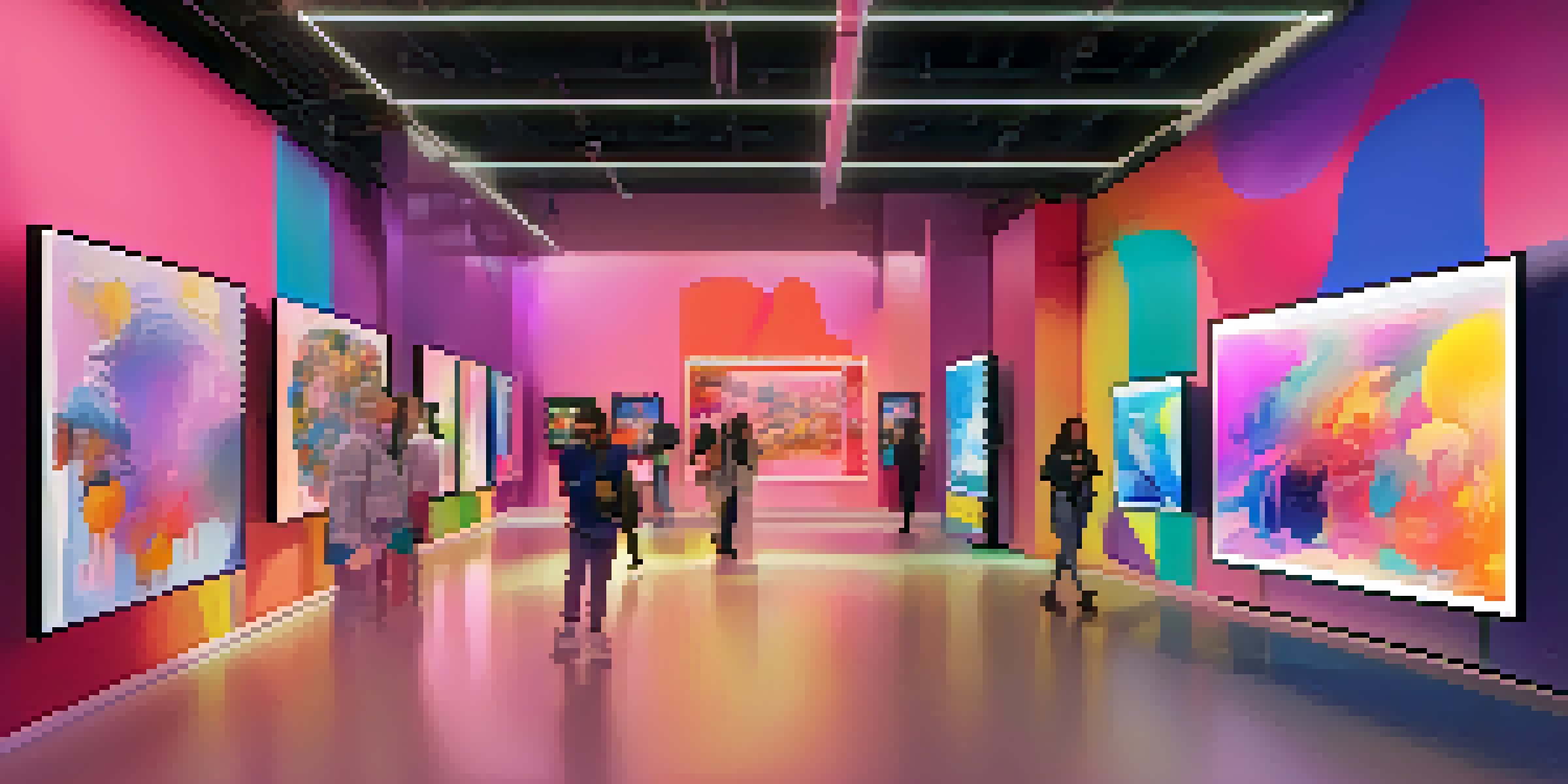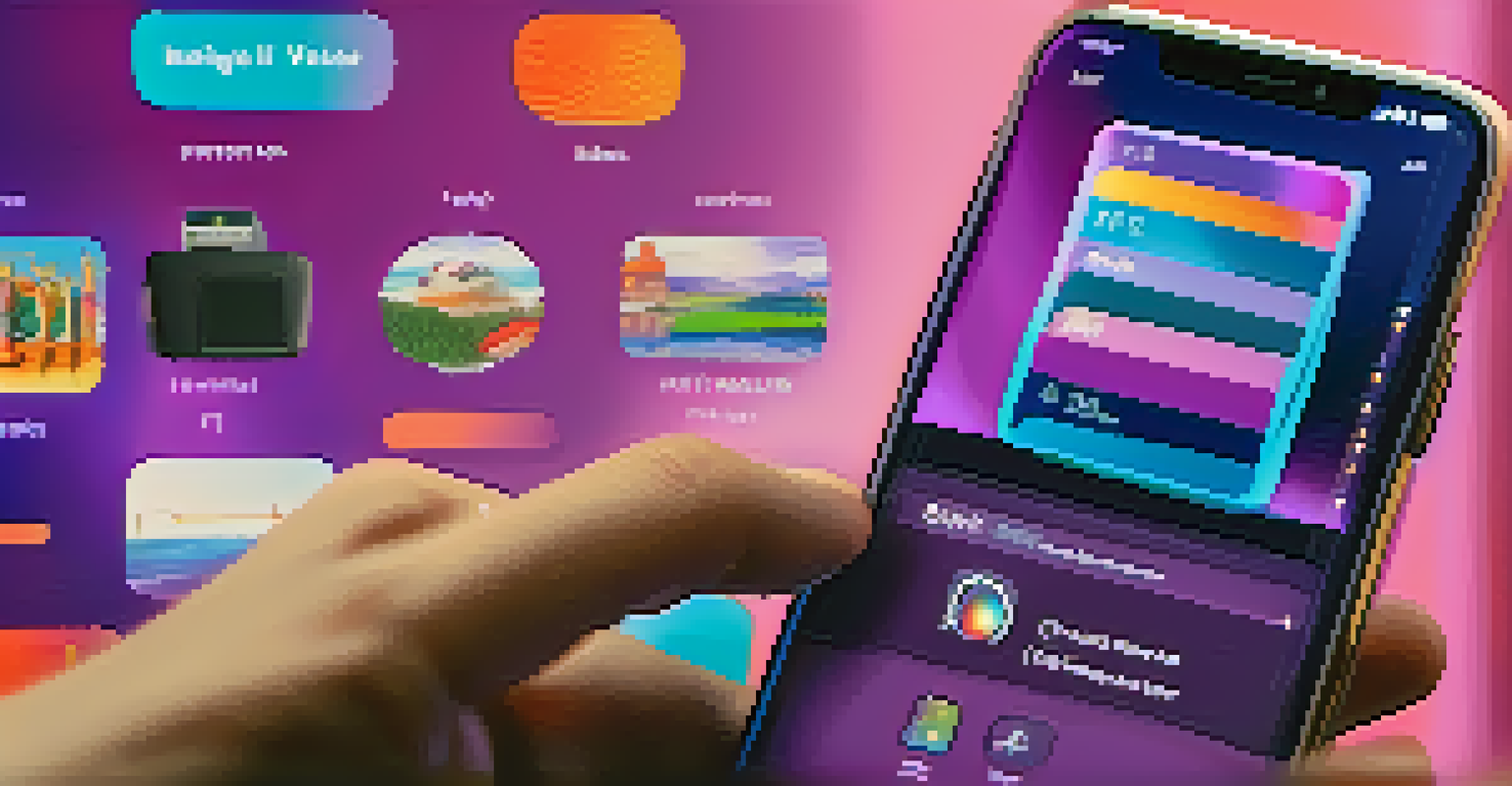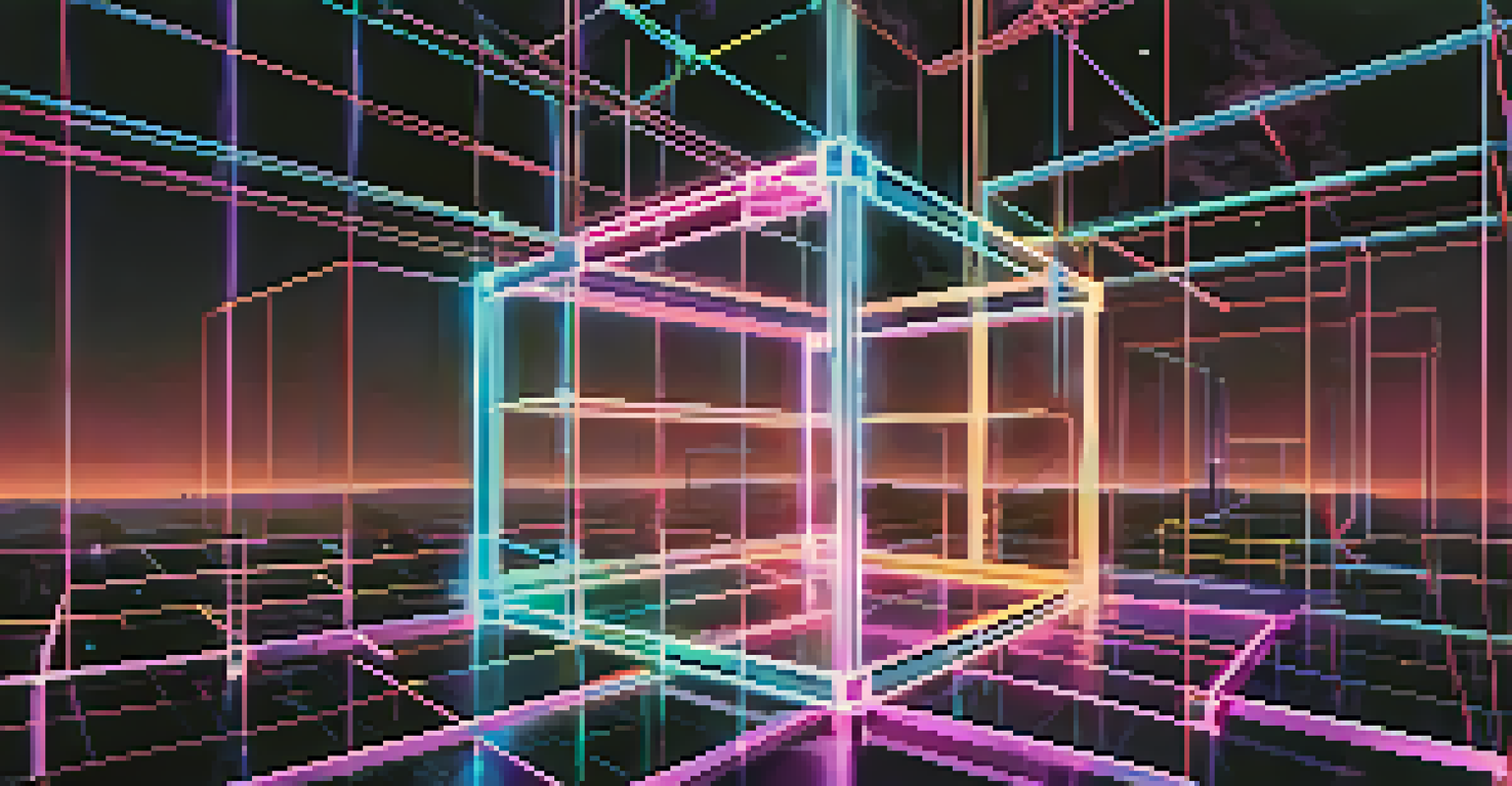Understanding NFTs: A Beginner's Guide to Digital Collectibles

What Are NFTs and Why Do They Matter?
NFTs, or Non-Fungible Tokens, are unique digital assets that represent ownership of a specific item or piece of content on the blockchain. Unlike cryptocurrencies like Bitcoin, which are interchangeable and can be exchanged for one another, NFTs are one-of-a-kind and cannot be replaced. This uniqueness is what gives them value, making them highly sought after in the digital world.
NFTs are a way to take ownership of something that is digital and unique.
The significance of NFTs extends beyond just being digital collectibles; they have revolutionized how artists, musicians, and creators monetize their work. By using blockchain technology, creators can sell their art directly to consumers without the need for intermediaries, ensuring they receive a fair share of the profits. This shift empowers artists and fosters a more equitable digital marketplace.
Additionally, NFTs have opened up exciting new opportunities for collectors and investors. Owning an NFT can provide access to exclusive content, experiences, or communities. As the market grows, so does the potential for NFTs to appreciate in value, making them an appealing investment for many.
How NFTs Work: The Technology Behind Them
At the heart of NFTs is blockchain technology, which ensures that each token is secure and verifiable. Blockchain is a decentralized ledger that records all transactions across a network of computers, making it nearly impossible to forge or duplicate an NFT. This technology is what establishes provenance, or the history of ownership, which is crucial in determining an NFT's value.

Most NFTs are built on the Ethereum blockchain, which supports smart contracts—self-executing contracts with the terms of the agreement directly written into code. These smart contracts automate the process of transferring ownership, ensuring that creators receive royalties each time their NFT is sold in the secondary market. This creates an ongoing income stream for artists, which is a game-changer in the industry.
NFTs Empower Digital Creators
NFTs allow artists and creators to sell their work directly, ensuring fair compensation and fostering a more equitable digital marketplace.
In essence, NFTs combine the appeal of digital ownership with the security of blockchain, creating a new realm of possibilities for creators and collectors alike. Understanding this technology is key to navigating the NFT landscape and making informed decisions about buying or creating these digital assets.
Different Types of NFTs You Can Collect
NFTs come in various forms, each appealing to different types of collectors. Digital art is perhaps the most well-known category, where artists create unique pieces that can be sold as NFTs. This has led to a surge in popularity for digital artists, giving them a platform to showcase their work and engage with fans directly.
The future of art is digital, and NFTs are the bridge to that future.
Beyond art, NFTs can also represent music, videos, virtual real estate, and even in-game items. For instance, musicians can release exclusive tracks or albums as NFTs, providing fans with unique content that can't be found anywhere else. This diversification of NFTs has created a rich tapestry of collectibles that cater to a wide range of interests.
Moreover, the rise of virtual worlds and metaverses has introduced a new dimension to NFTs, allowing users to buy, sell, and trade virtual land or items. This not only enhances the gaming experience but also blurs the lines between reality and the digital realm, making NFTs a fascinating and dynamic space to explore.
How to Buy and Sell NFTs: A Step-by-Step Guide
Getting started with NFTs is easier than you might think. First, you'll need a digital wallet that supports cryptocurrencies, as most NFT transactions are conducted using Ether (ETH), the currency of the Ethereum blockchain. Once your wallet is set up and funded, you can head to an NFT marketplace, such as OpenSea or Rarible, to start browsing.
When you find an NFT you want to buy, simply click on it, and you’ll see the purchase options. If you're ready to make a purchase, follow the prompts to complete the transaction. Remember to pay attention to gas fees, which are transaction costs on the Ethereum network. These fees can vary significantly, so timing your purchase can save you money.
NFT Market Holds Risks
Investors should be cautious due to market volatility, environmental concerns, and the potential for scams in the NFT space.
Selling NFTs is just as straightforward. You can either list your NFT for sale at a fixed price or set up an auction to let buyers bid. Once someone purchases your NFT, the transaction is recorded on the blockchain, ensuring that ownership is transferred securely. With a bit of practice, buying and selling NFTs can become a fun and rewarding endeavor.
The Risks and Challenges of NFTs
While the NFT market presents exciting opportunities, it's crucial to be aware of the risks involved. One major concern is the volatility of the market; prices can fluctuate dramatically, sometimes leading to significant losses for investors. Just like traditional art and collectibles, the value of NFTs is largely subjective and can be influenced by trends, popularity, and demand.
Another challenge is the environmental impact of blockchain technology, particularly Ethereum, which has been criticized for its high energy consumption. As the market grows, so does the scrutiny surrounding the carbon footprint of creating and trading NFTs. This has sparked discussions about the need for more sustainable alternatives in the NFT space.
Additionally, the emergence of scams and counterfeit NFTs poses a risk to buyers. It's essential to conduct thorough research before making a purchase, ensuring the creator is legitimate and the NFT is not a copy of someone else's work. Being informed and cautious can help mitigate these risks and lead to a more positive experience in the NFT marketplace.
The Future of NFTs: Trends and Predictions
As the NFT landscape continues to evolve, several trends are shaping its future. One notable trend is the increasing integration of NFTs into mainstream platforms, such as social media and gaming. Companies like Twitter and Facebook are exploring ways to incorporate NFTs, allowing users to display their digital collectibles directly on their profiles, which can drive further interest and adoption.
Moreover, the concept of utility NFTs is gaining traction, where tokens offer additional benefits beyond ownership. For example, owning an NFT might grant access to exclusive events, merchandise, or experiences. This added value can make NFTs even more appealing, creating a community around specific tokens and driving demand.
Future Trends in NFTs
The integration of NFTs into mainstream platforms and the rise of utility NFTs signal exciting developments for the digital asset landscape.
As we look ahead, the possibility of cross-chain NFTs—tokens that can operate on multiple blockchains—could also transform the market. This would allow for greater flexibility and interoperability, making it easier for users to trade and manage their digital assets. The future of NFTs is bright, and it will be exciting to see how they continue to develop and integrate into our digital lives.
Getting Started with Your First NFT Collection
Diving into the world of NFTs can be an exhilarating experience, and starting your own collection is a fantastic way to engage with this burgeoning market. Begin by exploring various marketplaces and familiarizing yourself with the different types of NFTs available. This will help you identify what resonates with you, whether it's digital art, music, or virtual items.
Once you've found your niche, consider setting a budget for your collection. Since the NFT market can be unpredictable, it's wise to approach it with a clear financial plan. Start small—perhaps with a few pieces that genuinely excite you—before expanding your collection as you gain more experience and confidence.

Finally, don't forget to engage with the community! Join forums, social media groups, or attend virtual events to connect with fellow collectors and creators. Sharing insights and experiences can enrich your understanding of the NFT space and inspire you as you build your collection. Remember, the journey is just as important as the destination!